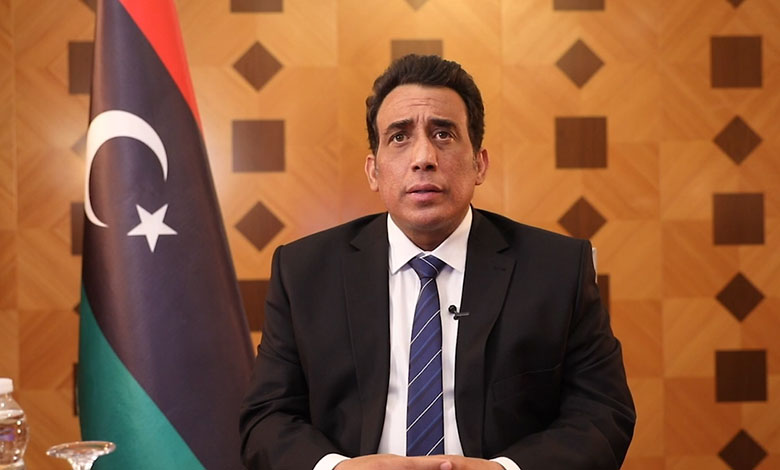Can Mohamed al-Menfi Break Libya’s Political Deadlock?

Libya’s Presidential Council called on Thursday for the presidents of the two houses of parliament, Aguila Saleh and Khalid al-Mishri, to meet in Ghadames (west) on January 11th to resolve the country’s political crisis amid UN efforts to support an initiative presented by the president to end the crisis and warnings from UN envoy Abdoulaye Bathily against activating alternative mechanisms.
Presidential spokeswoman Najwa Wahiba told Libya al-Ahrar (private television channel) that an official letter was sent to the House of Representatives and the Supreme Council of State to participate in the meeting. Observers see the Libyan scene as the last chance for the House of Representatives and the Supreme Council of the state to take steps leading to their exclusion from the alternative mechanisms.
On December 5, Saleh and al-Mushiri were scheduled to meet under UN auspices in the western city of Zintan, but Patili said they could not take place for “logistical reasons.”
Saleh and al-Mishri last met in Rabat last October and announced that they reached an agreement to “change sovereign positions and unify the executive power before the end of the year.”
In remarks to Libyan TV, Waheba said the expected meeting between Saleh and al-Mashri “comes according to the initiative of the presidential council”.
To resolve the crisis, the UN has initiated an initiative to form a parliamentary and state parliamentary committee to agree on a constitutional basis leading to elections, but the conflict between the two chambers has not resulted in a clear agreement.
At the beginning of this month, the Libyan President launched an initiative for comprehensive reconciliation in Libya by holding a consultative meeting between the three Councils (Presidential, Lower House and High Council of State), in coordination with Bathily, “in line with the provisions of the roadmap issued by the Libyan Political Dialog Forum governing the phase”.
The initiative was made to resolve the crisis between the two houses of parliament after the latter passed a law establishing a constitutional court in the eastern city of Benghazi instead of a constitutional chamber of the Supreme Court in the capital Tripoli.
Patili and the Western powers had warned both houses that they could find “alternative mechanisms” if they could not agree on an election and agree on a constitutional basis in which the presidential council would be a key player.
Among the alternatives, according to observers, is dissolving the House of Representatives and the State Council by presidential order and with international support. The Presidential Council assumes the legislative and executive powers in a way that allows it to establish a constitutional rule and issue it by presidential decree, as well as the elections laws and supervise the implementation and security of the elections.
Field Marshal Khalifa Haftar, the commander of the Libyan National Army, also pressed the political forces and the two councils to move forward with political solutions. He said the military option is on the cards should political efforts fail.
Many in Libya believe that their political leaders are unwilling to find a way out of the ongoing political impasse because elections may push them all out of power while foreign powers, led by Turkey, seek to perpetuate the conflict to preserve their interests.
“Since March, a government led by Fathi Bashagha has been in power and appointed by the House of Representatives in Tobruk, with the internationally recognized government of Abdul Hamid Dbeibeh, which refuses to hand over power except to a government mandated by a new elected parliament.”












